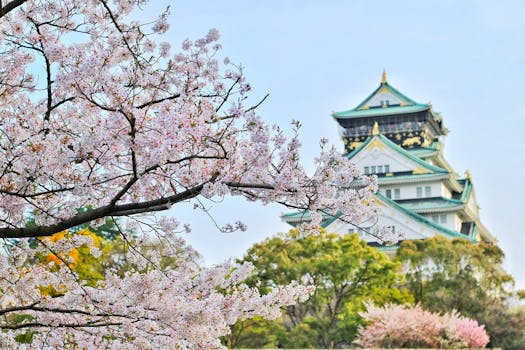Tokyo, Japan: Renting and Buying Property Guide

Known for its vibrant culture, advanced infrastructure, and bustling real estate market, Tokyo offers a unique blend of tradition and modernity.
Understanding Tokyo's Real Estate Market
Tokyo's real estate market is one of the most competitive in the world. The demand for properties is high, driven by the city's status as a global economic hub. According to data from the Ministry of Land, Infrastructure, Transport and Tourism (MLIT), property prices have been steadily increasing over the years. This trend is particularly evident in central areas such as Shibuya, Shinjuku, and Minato.
The market is characterized by a mix of old and new properties. Traditional wooden houses (known as "minka") coexist with modern high-rise apartments. Understanding the types of properties available can help you make an informed decision based on your preferences and budget.
Foreigners looking to buy or rent property in Tokyo should also be aware of certain legal considerations. While there are no restrictions on foreigners owning property in Japan, securing financing can be more complex. It's advisable to consult with a local real estate agent or legal expert who can guide you through the process.
Renting Property in Tokyo
Renting is a popular option for many expatriates and locals alike. The rental market in Tokyo is diverse, offering everything from compact studio apartments to spacious family homes. Key factors to consider when renting include location, budget, and lease terms.
Central districts like Chiyoda and Chuo are highly sought after due to their proximity to business centers and amenities. However, these areas come with higher rental prices. On the other hand, suburbs like Setagaya and Nerima offer more affordable options while still providing good access to public transportation.
- Location: Proximity to work or school, access to public transportation
- Budget: Monthly rent, utility costs, initial deposit
- Lease Terms: Length of contract, renewal conditions
One crucial aspect of renting in Tokyo is understanding the initial costs. Typically, renters are required to pay several months' worth of rent upfront as a security deposit (shikikin) and key money (reikin), which is a non-refundable gratuity paid to the landlord.
Buying Property in Tokyo
Purchasing property in Tokyo is a significant investment that requires careful planning and consideration. The first step is identifying your budget and securing financing if needed. Many Japanese banks offer mortgage loans to foreigners, though the application process may involve additional documentation.
When selecting a property, consider factors such as location, size, age of the building, and potential for future value appreciation. Central areas tend to have higher prices but also offer better investment potential due to their desirability.
| Area | Average Price per Square Meter |
|---|---|
| Shibuya | ¥1,200,000 |
| Minato | ¥1,150,000 |
| Taito | ¥850,000 |
| Nerima | ¥600,000 |
The buying process involves several steps including making an offer, signing a purchase agreement, and completing the payment transaction. It’s essential to conduct thorough due diligence on the property and consult with a real estate agent who understands both local market trends and legal requirements.
Navigating Legal Requirements
Understanding the legal landscape is crucial when renting or buying property in Tokyo. For renters, standard lease agreements typically last two years with an option for renewal. It's important to review the lease terms carefully and understand your rights and obligations as a tenant.
For buyers, ensuring clear property titles and understanding zoning laws are key considerations. Japan's real estate laws are designed to protect both buyers and sellers but navigating these regulations can be complex without professional guidance.
If you're considering purchasing land for development purposes, it's important to check with local authorities regarding any restrictions or special permits required for construction. Consulting with a local attorney who specializes in real estate law can provide valuable insights into these aspects.
Tips for Expats Moving to Tokyo
Moving to Tokyo as an expatriate comes with its own set of challenges and opportunities. Here are some tips to help make your transition smoother:
- Research Neighborhoods: Different neighborhoods offer varying lifestyles – from bustling city centers to quieter suburban areas.
- Learn Basic Japanese: While many people in Tokyo speak English, knowing basic Japanese phrases can be very helpful.
- Understand Cultural Norms: Familiarize yourself with local customs and etiquette to ease your integration into society.
- Connect with Expat Communities: Joining expat groups can provide support networks and valuable advice from those who have already navigated similar experiences.
A personal insight here: When I moved to Tokyo five years ago, I found it incredibly beneficial to connect with local expat communities online before arriving. They provided me with practical advice on everything from finding an apartment to navigating public transportation.
Navigating Tokyo’s property market requires careful planning whether you’re renting or buying. Understanding local real estate trends can help you make informed decisions that align with your lifestyle needs and financial goals.